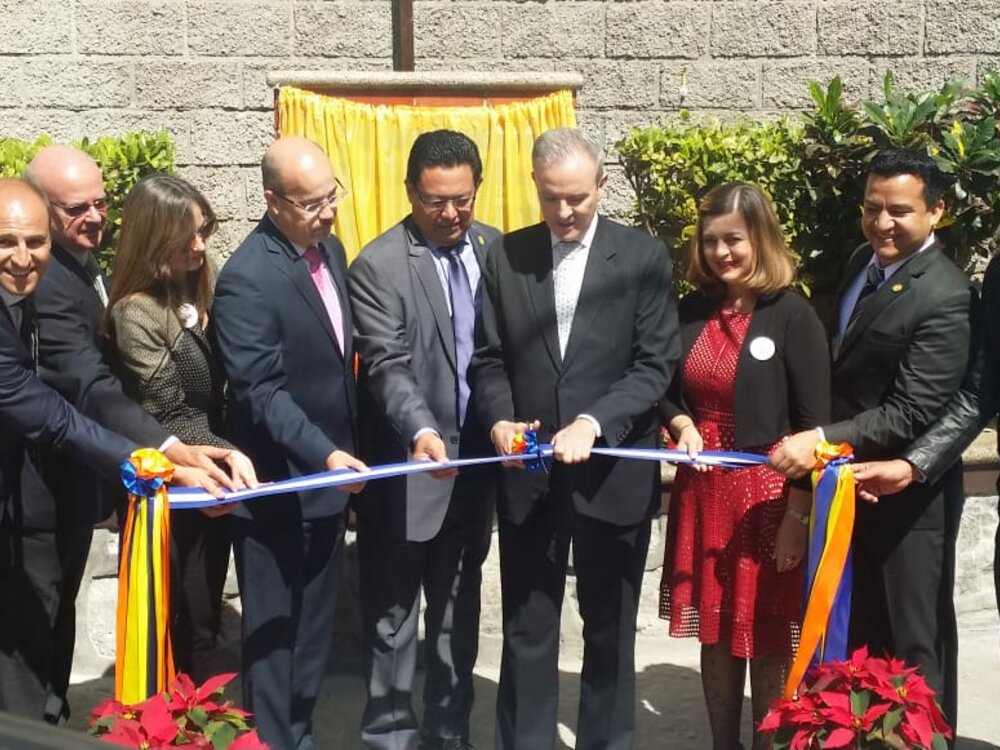Academic scholarships in the use of photovoltaic energy to be promoted

The efficient use of solar energy will strengthen the educational management of the Francisco Morazán National Pedagogical University of Honduras by means of implementing improvements in the scholarship program.
Tegucigalpa, November 29, 2018.- Spain’s Debt Conversion Program to Honduras, which is managed by the Central American Bank for Economic Integration (CABEI), announced the completion and startup of the project, "Strengthening the Educational Management of Francisco Morazán National Pedagogical University (UPNFM) through the use and exploitation of Photovoltaic Energy.”
With this initiative, the installation of photovoltaic solar panels with an approximate capacity of 1.4 megawatts has been carried out; this installation will fulfill the study center’s electricity requirements.
Strengthening educational management
Part of the project involves using the savings that will be obtained from the payment of electricity to expand and improve the scholarship program for students of the Institution's Center for Research and Educational Innovation, including both under and post graduate students, as well as teachers and administrators.
This program will ensure that people with limited resources in any part of the Honduran national territory will have access to scholarships at this university. Approximately 1,500 people per year are identified as direct beneficiaries, including scholarship students and technical personnel trained in operation and sustainability of renewable energy systems. The project also estimates it will indirectly benefit approximately 12 thousand people, including family members and the UPNFM population.
It is noteworthy that the actions executed through this program are in line with the development policies of the Governments of Honduras and Spain, as well as with the axis of Social Development of the CABEI 2015-2019 Institutional Strategy, "Integrating Sustainable Development and Competitiveness," which is aimed at improving the quality of life of Central Americans.
The representatives of the Governments of Honduras and Spain, as well as authorities from CABEI and UPNFM stressed in their participation the importance of this project's entry into operation, which will contribute to environmental protection, not only in the generation of renewable energy, but also in a reduction in the use of electric power and its direct impact on education in the country.






